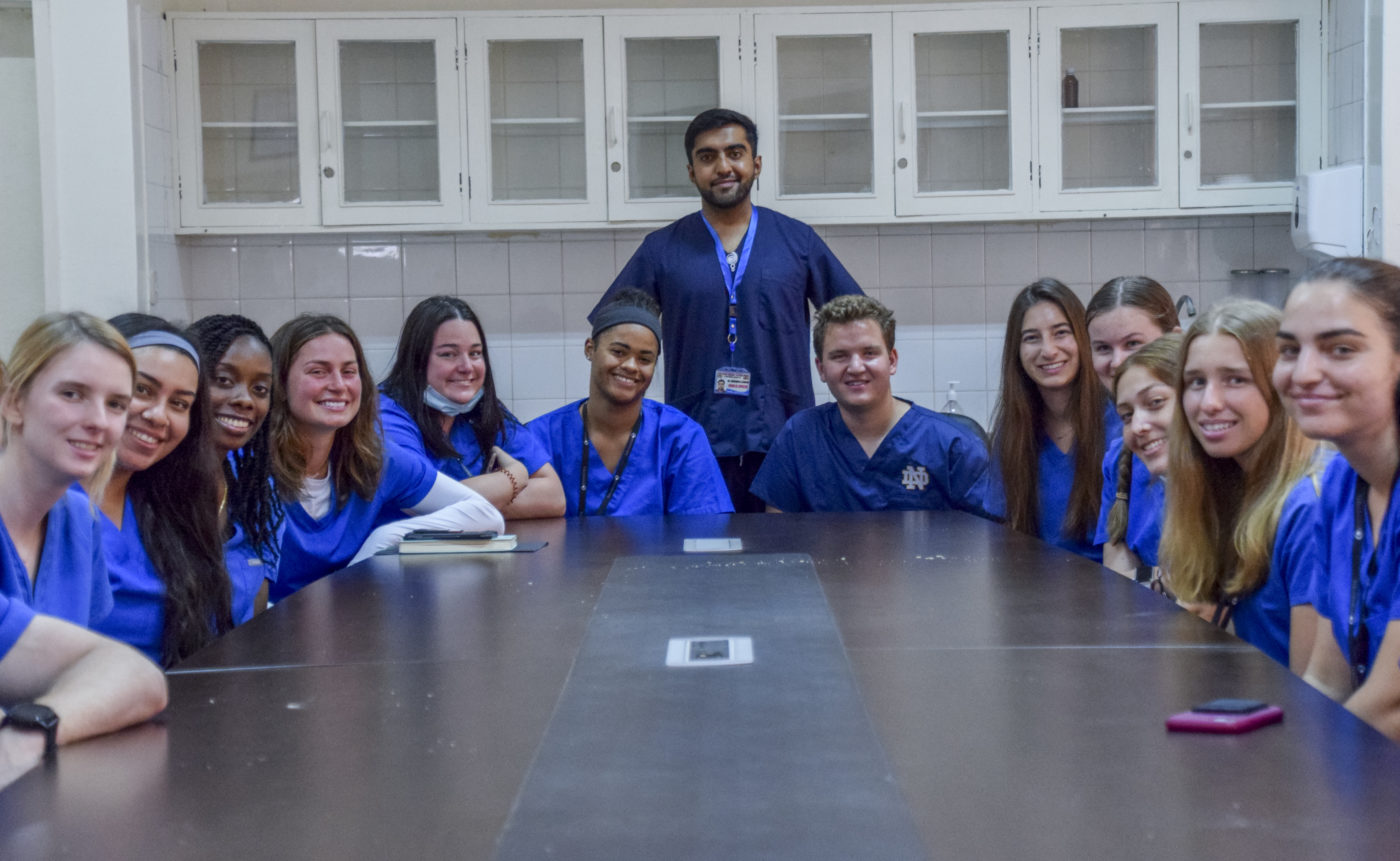Introduction
If you are planning to join a PA school to pursue a career in medicine, then you need to prepare for the most important step of the application process, the PA school interview. Although interviews can be daunting, they are also a sign that you are almost done with the application process. The best way to answer the majority of the interview questions for a physician assistant correctly is by preparing thoroughly for the interview. Skill and passion alone are not enough to qualify you for highly competitive PA schools.
Luckily for you, we have prepared a guide of PA school interview question examples below that you can expect during the interview. Moreover, here are a few other ways you can prepare yourself in order to guarantee your success on the big day. They include:
Dress Professionally
Your interviewers will not only judge you by how you answer the questions but also by how you present yourself. We recommend wearing a suit so that you can appear composed and highly professional, whether male or female.
Arrive Early
Even if you have studied all the PA school interview question samples, arriving late may make you appear anxious and unprepared, which might have a negative impact on your performance. Make sure that you arrive early so that you can have ample time to calm your nerves and face the interviewers.
Know the Cardinal Interview Rules
If this is your first interview, it is normal to feel worried and anxious because you do not know what to expect. We recommend practicing for the interview with a friend or advisor that will ask you the questions in order to gauge how well you will present yourself. While practicing, aim to answer the questions in a simple and direct manner. This will ensure that your answers are short and relevant.
Moreover, make certain that you present yourself in a positive manner so that you appear confident and sure of yourself during the interview. If you aren’t sure about a specific question, ask the interviewer to clarify it before answering. In case you are answering a question, and it feels like you lost track, it’s okay to ask the interviewer if you are answering relevantly. They might help you clarify.
Ensure that you have also prepared some questions about the school’s PA program to ask your interviewers. This will demonstrate that you are indeed interested in the school and want to learn as much as possible about it.
At International Medical Aid, we provide PA School Admissions Advising to help you get into the PA school program of your dreams.
How to Prepare for a PA School Interview
Now that you know how to present yourself during the interview, let’s get to the most important part of how to prepare for a PA school interview by going through some of the questions you should expect. The list of PA school interview question examples includes:
1. What is a Physician Assistant?
The first thing the interviewers will check is whether you have a good understanding of the PA profession and what the role entails. How well you answer this question will set the pace for the rest of the interview. So, what is a PA?
A Physician Assistant (PA) is a healthcare provider that is licensed and holds an advanced medical degree. The main role of a PA is to provide direct patient care by diagnosing and treating patients in primary care and specialty areas. The PA works together with the supervising doctor to provide a patient with the treatment they require. Some specific roles of a PA that you can mention during the interview include:
- Making Rounds in the Hospital to Check on the Progress of Patients
- Writing Prescriptions for Medications
- Carrying Out Patient Exams
- Giving Patients Advice About Preventive Care
- Assisting Surgeons During Surgeries
- Diagnosing Illnesses
- Creating Treatment Plans for Patients
The scope of practice of a PA is usually determined by state law as well as the supervising physician. A PA can practice in any state within the United States and can work in clinical settings or specialty medical care facilities.
2. What is the Difference Between a PA Vs MD?
The interviewer will be keen to know whether you understand the difference between a PA and an MD. Although their roles appear similar at first glance, there are some important differences between an MD and a PA.
For instance, an MD carries out their role independently when treating a patient, while a PA must work under the supervision of a doctor or physician. Also, a PA cannot perform any surgery on a patient without supervision. The PA can assist an MD during surgery. An MD can carry out any surgical procedure they deem necessary for the recovery of their patient.
Another major difference between an MD and a PA is their educational requirements. A doctor requires nine years of medical school and training as well as 3 to 7 years of residency to obtain national and state board certifications.
On the other hand, physician assistants are required to attend medical school for six years and have a one-year residency medical experience in order to become certified. After that, the PA can provide direct patient care in medical facilities.
This means that if you desire to pursue a career in medicine with lesser school years, then becoming a PA may be the best thing for you.
3. What is the Difference Between a PA vs an NP?
A common PA school interview question you should expect is the difference between a nurse practitioner and a physician assistant. The interviewer’s motive is to ensure that you fully understand the specific role of a PA to ensure you are not confusing it with other roles in the medical field.
A nurse practitioner and a physician assistant carry out similar roles on patients even though their training and education are different. The training of a nurse practitioner focuses mostly on providing patient care, while a physician assistant’s training can specialize in different fields in the medical industry, such as:
- Cardiology
- Neurology
- Radiology
- General practice
- Pediatrics
- Internal medicine
- Anesthesia
Another key difference between a nurse practitioner and a physician assistant is that nurse practitioners are required to take their recertification exam after every five years, while physician assistants take their recertification exam every ten years.
4. What is the History of the PA Profession?
This PA school interview question does not mean that you need to have the entire medical history of the US. at your fingertips. The interviewer simply wants to check whether you know how the PA profession began and the main vision behind it.
The very first physician assistants in the United States received their training in North Carolina at Duke University in 1965. The purpose of the program was to train Vietnam veterans so that they could offer medical assistance to patients. Although the veterans had served as medics, they did not have the required licenses to become MDs. Therefore, the PA program was created to allow trained and experienced practitioners in the medical field that did not have an MD degree to provide patient care and treatment.
Although the program began in 1965, the first proposal to develop the program was submitted in 1961. Eventually, PA was recognized as a medical profession, and new codification and certification standards were introduced. Currently, we have about 250 accredited Physician Assistant programs in the United States as well as 50 states where PAs have prescribing authority.
5. Why PA?
One of the most important questions that you must be prepared to answer is Why PA? Your interviewer will want to understand why you have an interest in the PA field. “Why PA when you can become a nurse practitioner or an MD?” In fact, in addition to answering this Why PA question in your interview, we recommend that you address it in your personal statement if you want to increase your chances of being considered for the PA program.
As we mentioned earlier, knowing how to answer a question precisely and relevantly will help save you and your interviewer a lot of time. If you are asked why PA and not any other specific role in the medical field that you are not familiar with, direct your answers toward why you chose PA specifically. Don’t try to explain the other medical role if it is unfamiliar to you.
We recommend speaking of your great qualities, strengths, goals, and where you see yourself in the medical field. Explain what you desire to achieve as a PA and let them know your driving force behind becoming a PA.
Another important tip we mentioned earlier is always to present yourself in a positive manner. For example, if you had previously applied to medical school and failed to get in, do not tell the interviewer that since you were not accepted to medical school, you want to try out your luck in PA school. This type of response may cause you to fail the interview and miss out on a great opportunity to become a PA.
If you need help on how to answer interview questions for a PA program, have a look at our PA school admissions advising services here, and we will help.
6. How Are You Preparing to Join the PA Profession?
This type of question is meant to separate the basic candidates from the highly competitive candidates. Although this seems like a simple PA school interview question, it will make you stand out against your competitors if you answer it smartly and strategically. The interviewer is trying to gauge your level of commitment to the healthcare industry.
Therefore, instead of providing a generic answer, we recommend that you tailor this question to suit your strengths and goals. If you have any clinical, shadowing, or volunteering experiences, this is your moment to shine. Explain how volunteering in the healthcare industry has prepared you for a PA program by giving you the practical hands-on experience that you need to become an excellent PA.
In case you do not have any experience, talk about any extra courses you may have taken that are relevant to the healthcare industry and explain the skills you have learned and how you plan to use those skills when you join the PA training program.
You can demonstrate to the interviewer how your experience or education has been helpful in solidifying your commitment and dedication to becoming a PA. If you do not have any additional courses or healthcare experience that you can use to answer this question, then you can think about a particular patient interaction you may have had or witnessed that motivated you to become a PA.
This question is almost similar to the Why PA question because it allows you to show the interviewer why you think becoming a PA is the career path you are meant to take and the steps you have taken to solidify your dedication to the healthcare field.
Joining Pre-PA internships abroad is a great way to prepare for your career in PA. Not only will you get the experience to stand out, but you will also receive training that will prepare you for a PA program. If you want to join Pre-PA internships abroad, consider applying to our Pre-PA Internship Program.
7. Why Did You Choose Our PA Program?
Now, in addition to knowing why PA is your choice, the interviewer will want to know why you chose their specific PA program. It’s just like a job interview where the recruiter asks why you want to work for their organization.
This is why we began this guide by emphasizing the importance of getting ready for the interview. You might know how to answer the PA-related questions, but if you don’t give a meaningful answer to why you chose the specific PA program of the school, you might not make it to the final cut of the application process.
So, before you head to the interview, ensure that you do as much research as possible about the school. For example, what is the mission of the school? The interviewer might ask you to state the mission of the school to see whether you would be a good fit for their PA school program. If you don’t know the mission or vision of the school, you might be disqualified especially if you are applying to a highly competitive PA program.
Another key factor to consider about the interview is the main core value of the school. If you want to beat your competition, you can incorporate the school’s values in your answers when describing why you want to be a PA, your strengths, your motivation, or how you are preparing to join the PA program.
When the interviewer realizes that your values are similar to those of the school, they will likely see that you are more qualified for the program compared to your competitors because your values align with the school.
For example, suppose the PA program aims to provide low-income populations with medical care. In that case, your experience or interest in serving such members of the community will indicate that you would be a good fit for their program.
8. Which is the Most Stressful Work/Academic Experience You Have Ever Had?
If you are planning to join the healthcare industry, then you need to be able to work under pressure in high-stress conditions. Think about it. You will be dealing with patients’ lives. How fast can you react under pressure? Do you have the ability to think quickly to save somebody’s life? Can you prioritize the needs of different patients in the event of an emergency by multitasking? The interviewer will ask this question to see whether you have had any experience that could demonstrate how fast you can think on your feet in the event of an urgent medical situation.
In case you have never dealt with a stressful situation at work or at school, we recommend using any other relevant experience you may have had. For example, if you have ever done first aid on someone that was hurt at home, helped someone that was choking, administered CPR, witnessed an accident, and helped the survivors before first responders arrived, or any other similar experience, narrate it to the interviewer.
Keep in mind that the interviewer is more interested in your actions. Describe how you reacted, what you did, whether you were able to help, and how the experience affected you.
9. Which Things About Becoming a PA Do You Find Stressful?
One of the major concerns about the healthcare industry is burnout. Professionals in the medical industry complain about it all the time, and anyone interested in the medical field is aware of such stressors. The interviewer will check whether you are realistic about becoming a PA and if you have any knowledge of the challenges you will face.
Showing the interviewer that you are aware of challenges like burnout, working long hours, and the compromises you will have to make in your personal life in order to provide direct patient care will demonstrate how prepared and willing you are to join the PA school program.
Be honest about what you think about the stressors and demands of becoming a PA and how you plan to cope with such conditions. If you know any healthy coping tactics to deal with stressful conditions, you can describe them to the interviewer to show them how ready and resilient you are to mitigate stress as you work.
For example, if journaling, cooking, or swimming is a stress outlet for you, reveal them to the interviewer. It will help the interviewer better understand you as an individual instead of just a candidate applying for a PA school program.
10. What is the Main Problem That PAs Face Today?
Another question to practice when researching how to prepare for a PA school interview is the main problem that physician assistants face today. How you answer this question will demonstrate to the interviewer whether you are current on trending issues in the healthcare industry. You can talk about issues like burnout and how the shortage of PAs needs to be addressed to avoid overworking the available PAs.
Whichever issue you speak of, ensure that you explain how it would help to improve patient care and provide more healthcare services to underserved communities. We recommend tailoring your answer to align with the mission of the PA school that you are applying to.
For example, suppose the school’s mission is to provide better healthcare services to underserved communities. In that case, you should not say that low pay is a big issue in the healthcare industry and that all PAs should boycott until the government increases their wages.
Although low wages are an issue in the healthcare industry, the way you present the issue during the interview may fail to align with the core goals of the school. Therefore, be tactful about how you address the problems that PAs face today.
11. Do You Prefer to Work on Your Own or With Others?
One of the PA school interview questions that you will be asked is whether you prefer to work on your own or with others. Healthcare is a collaborative field that requires you to work well with others. If you tell the interviewer that you dislike working with others, it might prevent you from successfully matriculating to the PA program. When you work as a PA, you must cooperate with other healthcare providers in the facility, such as the nurses, lab technicians, and supervising physicians.
For example, if you diagnose a patient with a certain illness that requires tests, you will have to work with other medical providers to run the tests and get the results. When doing rounds to check on patients, you will rely on the information nurses or other medical providers give you about the patient’s progress. During surgery, a doctor may count on you to assist during the procedure, which takes a team effort.
Ensure that you show your interviewer how well you can work with others for the well-being of the patients. Even if you prefer working alone, demonstrate that you have no problem working with others when required.
12. Why Should We Choose You?
One of the most common interview questions for PA school is why a school should admit you. The interviewer may claim that there is only one spot left in the PA school program and they need only one candidate. Why should it be you? This is a very important question that will determine whether you move forward in the application process or not. How would you answer the question if you were asked during a job interview?
Most people respond with how their qualifications, such as education, make them a suitable candidate for the job and how they will do their best to meet the organization’s goals. Usually, the majority of people that give such answers don’t get the job. The best response would be to show the recruiter the value you will be adding to the company and how you would be an asset to them. It would help if you showed them what you could offer them to help the organization grow.
The same applies to your PA school interview. Show the interviewer how the school would benefit from adding you to its team. As we stated earlier, aligning yourself with the goals of the school will help the interviewer view you as a valuable addition to the school.
If the school aims to provide medical services to underserved communities and you have experience volunteering in homeless shelters, for instance, the interviewer may see you have the potential to become the school’s ambassador for its mission to help those who cannot afford medical services.
Give the interviewer the impression that in addition to you benefiting from their PA school program, the school will also benefit by having you on the team.
Now you are ready for your PA school interview! If you study the guide above well, we guarantee that you will increase your chances for successful admission into the PA school program of your choice.










